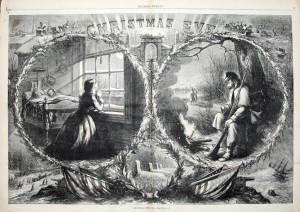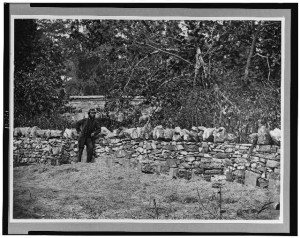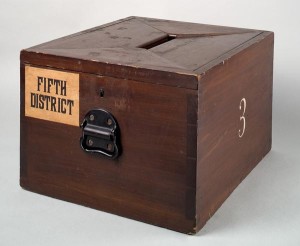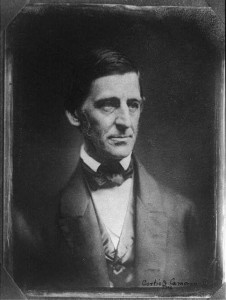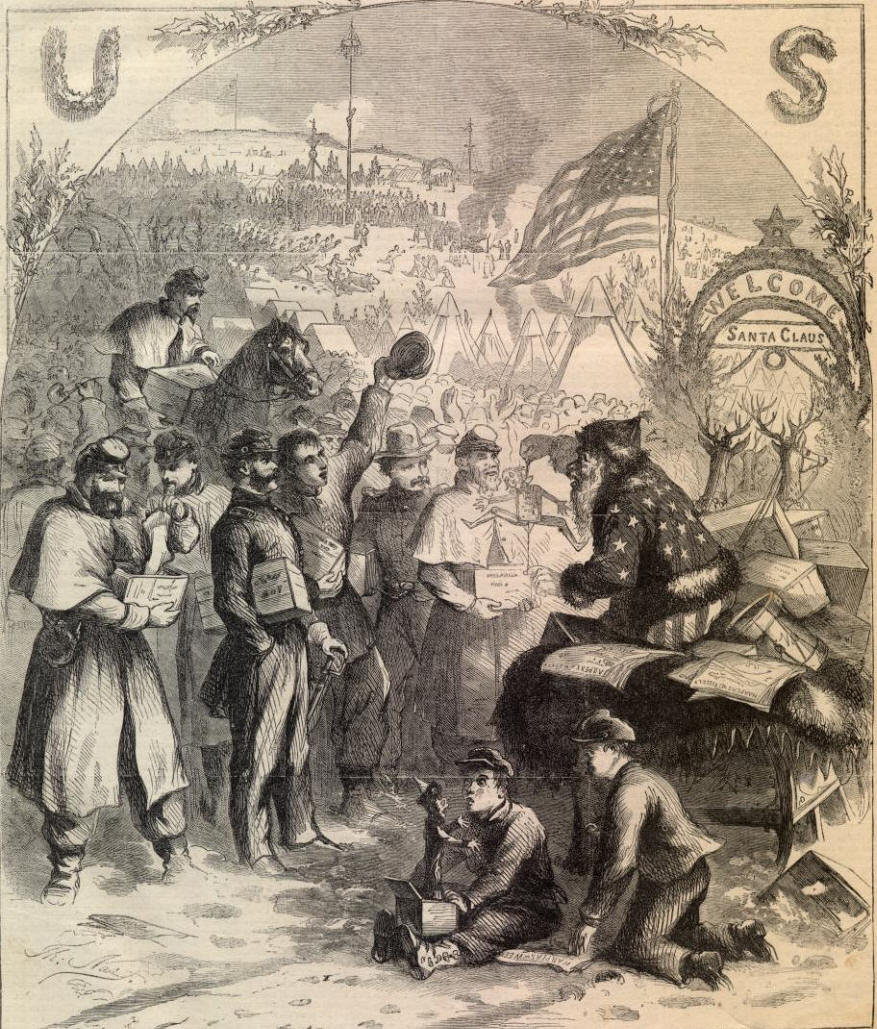From a Seneca County, New York newspaper in December 1862:
“When Shall We Have Peace.”
The Portland Advertiser, the leading Republican paper in Maine, asks the important and interesting question and answers it. We commend the answer to the careful attention of those who are so free with their charges of treason against every Democrat who speaks of peace:
We answer: – When Congress shall be persuaded that reason, not force, is THE DIVINITY of the age in which we live. When Congress shall be persuaded that history furnishes no example of six millions of people educated free and independent, being subjugated to captivity and ruled against their consent. When Congress shall be persuaded that no nation on earth has proved themselves powerful enough in arms, or in wealth to establish and maintain indefinitely, a military despotism over six millions of white men accustomed to freedom and to a representative Government. – When Congress shall be persuaded that every bayonet that carries a demand for obedience to law and to the Federal Government, should also carry the announcement of a religious respect for the political rights out of which the war has arisen, and a willingness to confer amicably upon the terms of a readjustment of those rights.
Fight on ye men of the north, and, fight on, will be the cry of the men of the South until, substantially, these conditions we have named shall come to pass; but fewer of each side shall live to enjoy the results, as day by day passes away, and all of each will be poorer in purse, until the result that gives peace shall be attained.
Peace is the child of reason and reciprocal interest. War is the heathen and soulless Moloch that devours without remorse, every life and every interest that stands in the way of its imagined proclaimed necessities. Cold, pitiless, inhuman is war in its best aspect. It makes children fatherless, wives widows, the rich poor, the poor miserable, the powerful feeble, the feeble despairing, and the world itself everything which it ought not to be, to every citizen and to every interest.
But fight on, fight, will be the impulsed cry of politicians, or aspirants to office, of government jobbers and contractors, and of fanatic one idea men, both at the North and the South. Fight on will be the cry of standard loyalty, until the still small, and yet sublime voice of the BALLOT-BOX shall bid battl[e]s to cease, and reason, not madness, to resume its sway over the councils of the nation.
__________
The telegraph states that on Monday [December 15th], the pickets of the contending armies [at Fredericksburg], fronting the left wing, mutually agreed upon an “armistice” among themselves, and freely intermingled with each other, exchanging their dead friends and comrades who lay on “neutral ground.”
During this time a General of our army rode by and put an end to these proceedings. The result was that both parties commenced firing, when nine of our men were killed.
After the general had left, the friendly demonstrations of our pickets were renewed, and butternut and blue uniforms freely mingled.
About this time General Franklin despatched a flag of truce, which the enemy immediately recognized, and the exchange of dead bodies was resumed and continued until completed.
Yesterday General Lee sent a flag of truce to General Burnside, asking him to detail men to bury his dead in front of Gen. Sumner’s gra[n]d division. This was done.
The wounded, with the exception of those whom the enemy obtained, have all been brought to this side of the Rappahannock, and as rapidly as possible are being sent to Washington.
The Portland Advertiser seems to be using some Transcendentalist philosophy, although its use of reason might be different than the way Ralph Waldo Emerson, a leader in transcendentalism, meant it. Emerson considered reason to be “the intuitive awareness of eternal truth”[1] and distinguished it from the sensible, material world. Reason was the way to understand the divine and live one’s life accordingly. That did not mean peace at any price. From the Wikipedia link: “These essays [The Conduct of Life] also find Emerson strongly embracing the idea of war as a means of national rebirth: ‘Civil war, national bankruptcy, or revolution, [are] more rich in the central tones than languid years of prosperity,’ Emerson writes.”
________________
Star-spangled Santa
The two Christmas drawings are by Thomas Nast from the January 3, 1862 issue of Harper’s Weekly hosted at Son of the South, where you can read about the Battle of Fredericksburg and Santa’s visits to the Union camps.
- [1]Encyclopedia Britannica, The 100 Most Influential Americans, London: Constable & Robinson Ltd, 2008. Print. page 108.↩

